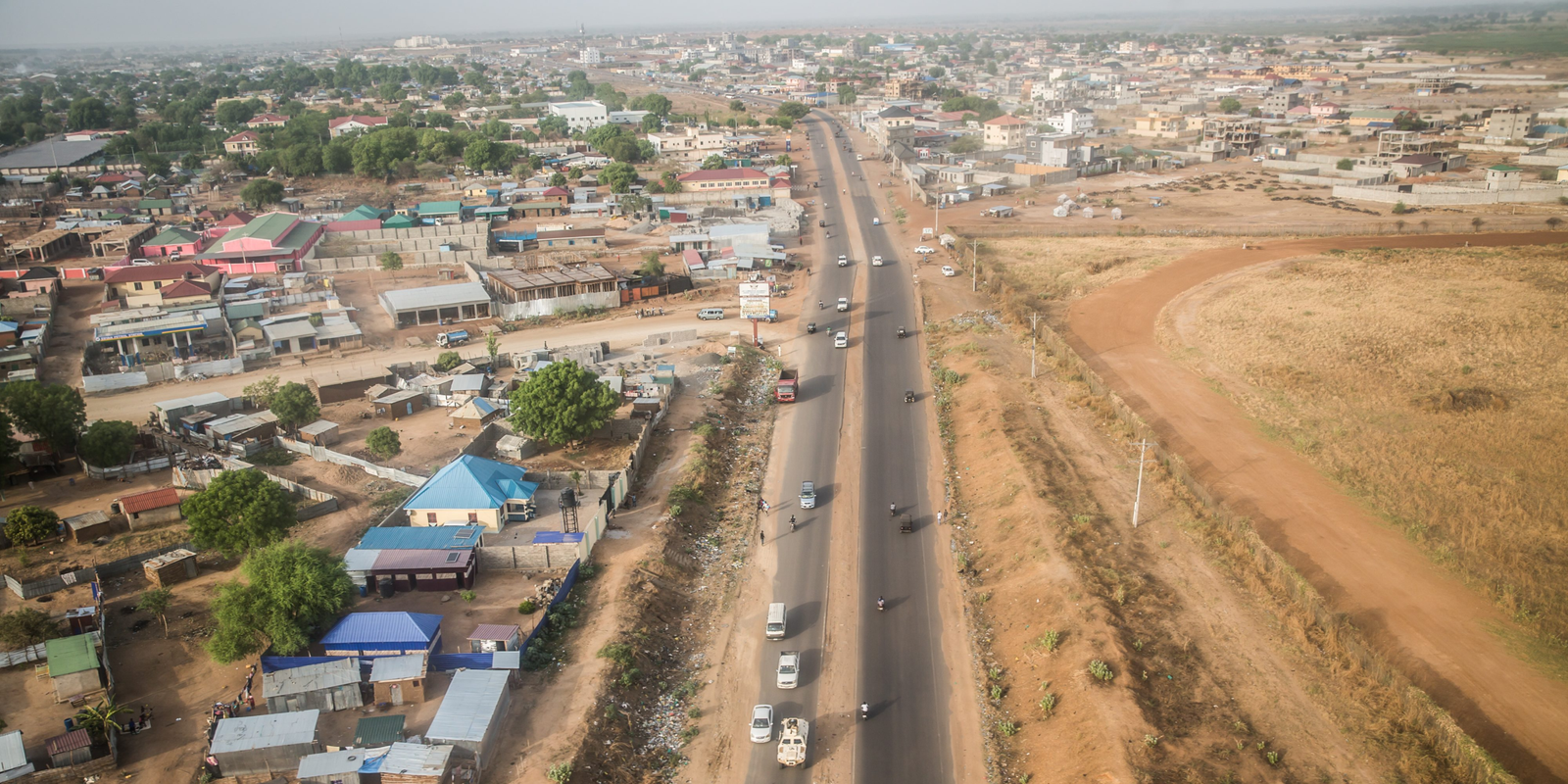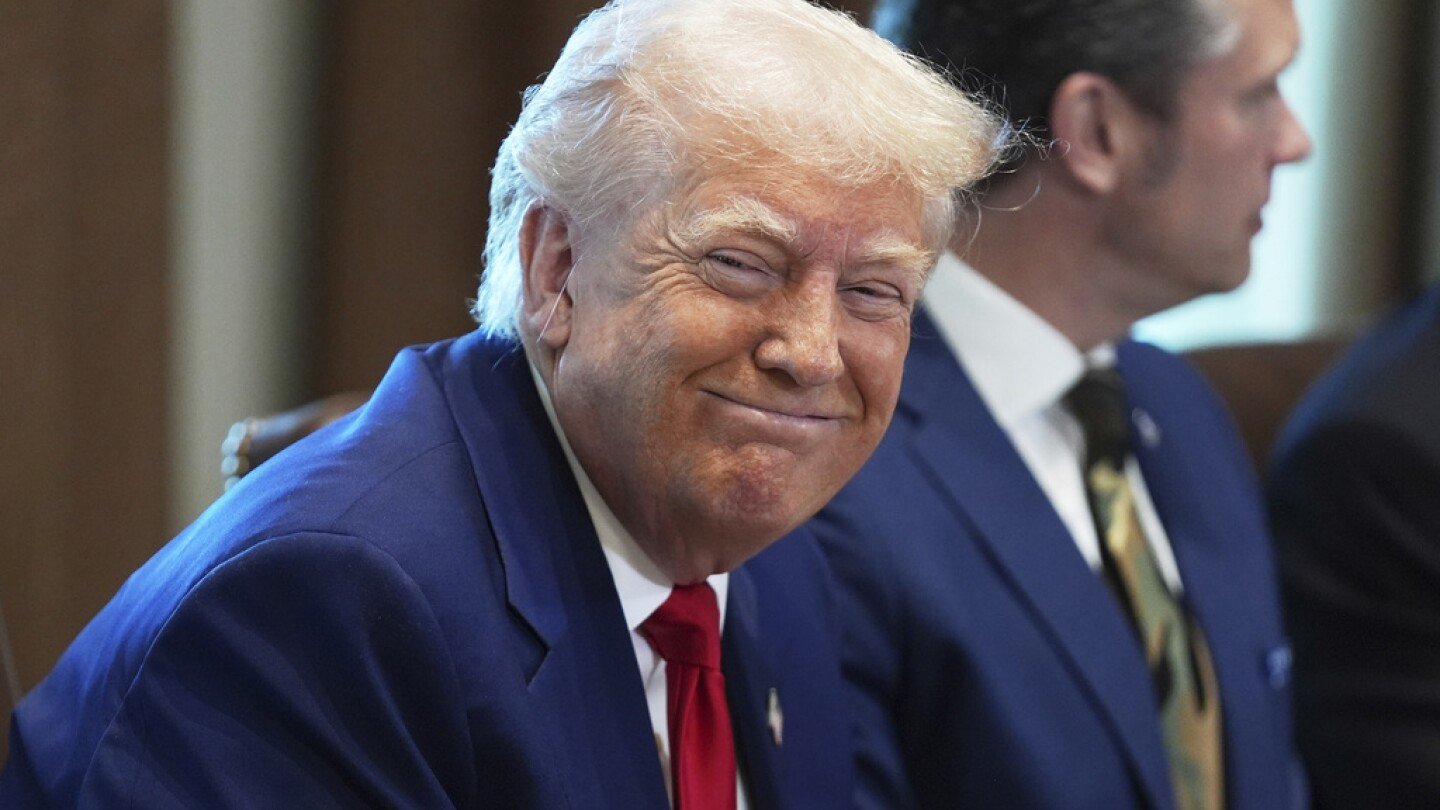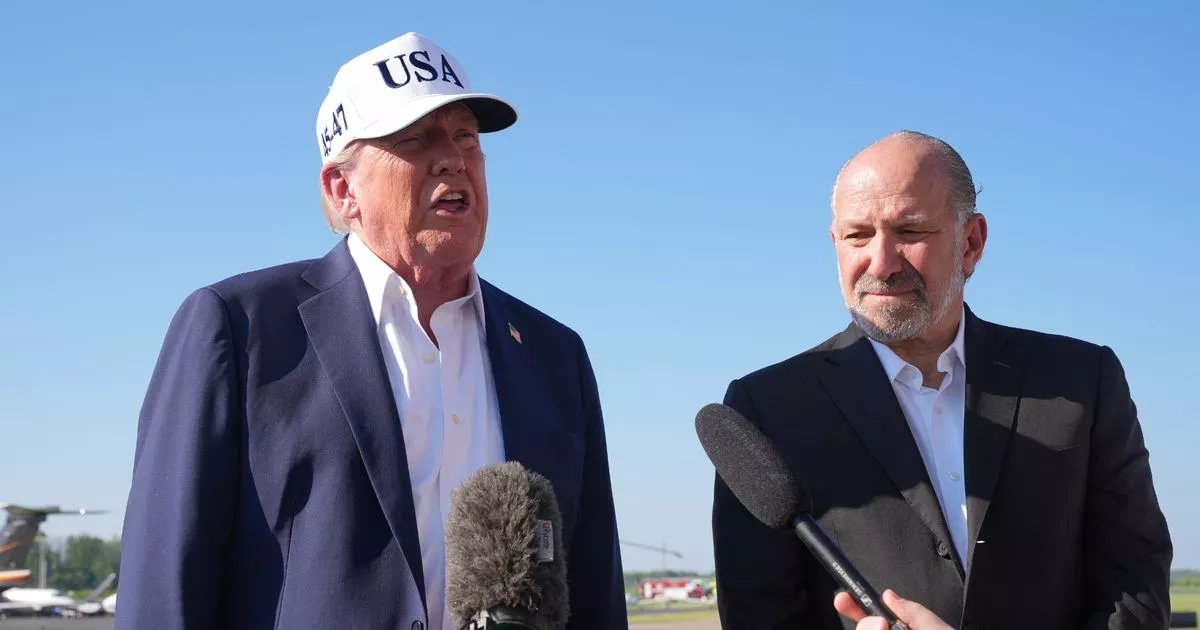© THE INTERCEPT
ALL RIGHTS RESERVED
The Supreme Court is helping the Trump administration expand its deportation regime — and restrict immigrants’ rights to object for fear of torture.
The Trump administration succeeded in its quest to deport the eight men it imprisoned on a U.S. military base in Djibouti to violence-plagued South Sudan on Saturday, expanding its globe-spanning effort to banish immigrants to so-called third countries.
“After weeks of delays by activist judges that put our law enforcement in danger, ICE deported these 8 barbaric criminals [sic] illegal aliens to South Sudan,” Department of Homeland Security spokesperson Tricia McLaughlin told The Intercept in an email. The Trump administration reveled in a Thursday 7-2 Supreme Court decision granting its request to expel the men from Camp Lemonnier to the restive East African nation.
Their deportation marked a dramatic win for the Trump administration’s efforts to exile immigrants to countries other than the ones they hail from and which are notorious for violence and human rights violations.
More than a decade of intermittent political turmoil and outright civil war has left South Sudan politically unstable and ravaged by violence. Recent clashes between armed groups drove 165,000 people to flee their homes in three months, according to a June United Nations High Commissioner for Refugees report. The country is subject to a U.N. warning about the potential for full-scale civil war and a U.S. State Department “Level 4: Do Not Travel” advisory.
The Trump administration abdicated the safety and legal fates of the eight men, only one of whom is South Sudanese, to the East African nation. The men were transported to a hotel in South Sudan’s capital, Juba, where they are under government supervision, according to Edmund Yakani, a longtime human rights defender in South Sudan and executive director of the Community Empowerment for Progress Organization, or CEPO.
Yakani told The Intercept that the men arrived by U.S. military flight on July 5 around 5 a.m. local time. A photo of the men released by DHS shows them onboard a transport plane, handcuffed and shackled at the feet, surrounded by camouflage-uniformed personnel.
“DHS deported these eight men to South Sudan, one of the most dangerous countries on the planet, without any opportunity to contest their deportations based on their fears of torture or death there. The U.S. State Department advises people to draft a will and to establish a proof of life protocol before traveling there,” Trina Realmuto, a lawyer for the immigrants in the case and executive director at National Immigration Litigation Alliance, told The Intercept.
Thursday’s Supreme Court ruling allowing the transfer added to a recent spate of decisions that have paved the way for the Trump administration’s mass deportation regime — and have restricted immigrants’ rights to object on the grounds that they might be tortured or killed. With Justices Sonia Sotomayor and Ketanji Brown Jackson dissenting, the court lifted an order from U.S. District Judge Brian Murphy that had blocked the men’s expulsion to South Sudan.
“The United States may not deport noncitizens to a country where they are likely to be tortured or killed. International and domestic law guarantee that basic human right,” Sotomayor wrote in a bitter dissent. “In this case, the Government seeks to nullify it by deporting noncitizens to potentially dangerous countries without notice or the opportunity to assert a fear of torture.”
Original reporting. Fearless journalism. Delivered to you. Will you take the next step to support our independent journalism by becoming a member of The Intercept?
By signing up, I agree to receive emails from The Intercept and to the Privacy Policy and Terms of Use.
All of the men deported to South Sudan had been convicted of serious crimes, and many had finished serving lengthy prison sentences. Most of the men – who hail from Cuba, Laos, Mexico, Myanmar, Pakistan, South Korea, and Vietnam – have no ties to South Sudan. An eighth is South Sudanese but left Africa when he was a baby – and a decade before the nation of South Sudan existed as its own country.
A Justice Department attorney told a federal judge Friday that South Sudan informed the U.S. it would offer the deportees temporary immigration status, but the lawyer could not confirm whether they would be detained on arrival. The Trump administration has said in court filings that South Sudanese officials have offered assurances that the men will not face torture.
Earlier this year, Secretary of State Marco Rubio revoked all visas for South Sudanese passport holders, citing the country’s past refusal to accept deported nationals.
Yakani, a lawyer who once investigated atrocities in Darfur for the U.N., said that South Sudan was obligated to ensure that the deportees are not mistreated or tortured.
“We are demanding the governments of South Sudan and the United States be transparent and open on this arrangement in terms of any deal reached between Juba and Washington, D.C.,” he told The Intercept. Yakani stressed that the government should immediately ensure that the deportees are put in touch with their families and lawyers.
Sources in South Sudan, who spoke on the condition of anonymity for fear of government retribution, said that the government was planning to reach out to the countries of origin of deportees who wished to return to their homelands.
The successful expulsion of the eight men to South Sudan was the latest in the Trump administration’s pursuits to expel immigrants to so-called third countries when U.S. law bars them from being sent to their home countries, when their home countries will not accept them, or, seemingly, as a punitive measure and a means to frighten other immigrants or potential immigrants with the possibility of being expelled to dangerous nations.
“Make no mistake about it, these deportations were punitive and unconstitutional,” Realmuto said. “Yet the Supreme Court’s procedural ruling — on the shadow docket and devoid of any reasoning — prevented the district court from enforcing its order which had provided basic due process rights.”
Murphy, the District Court judge, had issued a nationwide injunction in a prior case requiring the administration to give deportees advance notice of their destination and a “meaningful” chance to object if they believed they’d be in danger of harm. He intervened in the case of the eight men despite a Supreme Court ruling last month that put his injunction on hold.
On Friday, Murphy said the latest Supreme Court ruling required him to deny claims raised in a last-ditch lawsuit the men filed to prevent their expulsion to South Sudan, deciding that the new suit raised “substantially similar claims” to their previous case. The eleventh-hour lawsuit argued that expulsion to South Sudan would be “impermissibly punitive” under an 1896 Supreme Court precedent that bars deporting immigrants to countries when doing so “inflicts an infamous punishment.”
The Supreme Court’s recent decisions have been a boon to the government’s mass deportation regime.
The administration has already explored deals with more than a quarter of the world’s nations to accept so-called third-country nationals — deported persons who are not their citizens. It has been employing strong-arm tactics with dozens of smaller, weaker, and economically dependent nations to expand its global gulag for expelled immigrants.
The deals are being conducted in secret, and neither the State Department nor U.S. Immigration and Customs Enforcement will discuss them. With the green light from the Supreme Court, thousands of immigrants are in danger of being disappeared into this network of deportee dumping grounds.
“Apparently, the Court finds the idea that thousands will suffer violence in far-flung locales more palatable than the remote possibility that a District Court exceeded its remedial powers when it ordered the Government to provide notice and process to which the plaintiffs are constitutionally and statutorily entitled,” Sotomayor wrote in a dissent last month.
IT’S EVEN WORSE THAN WE THOUGHT.
What we’re seeing right now from Donald Trump is a full-on authoritarian takeover of the U.S. government.
This is not hyperbole.
Court orders are being ignored. MAGA loyalists have been put in charge of the military and federal law enforcement agencies. The Department of Government Efficiency has stripped Congress of its power of the purse. News outlets that challenge Trump have been banished or put under investigation.
Yet far too many are still covering Trump’s assault on democracy like politics as usual, with flattering headlines describing Trump as “unconventional,” “testing the boundaries,” and “aggressively flexing power.”
The Intercept has long covered authoritarian governments, billionaire oligarchs, and backsliding democracies around the world. We understand the challenge we face in Trump and the vital importance of press freedom in defending democracy.
Voices
Huda Skaik
A civil defense worker, a doctor, a reporter, and a photojournalist tell their harrowing stories of responding to Israel’s war on Gaza.
The War on Immigrants
Jonah Valdez
Video analysis of reveals how federal agents in Southern California regularly use force against unarmed individuals, many of them U.S. citizens.
Chilling Dissent
Akela Lacy
“I wanted to center Palestine,” a Harvard commencement speaker told The Intercept. Read and watch her speech.
© The Intercept. All rights reserved
This is not a paywall.
By signing up, I agree to receive emails from The Intercept and to the Privacy Policy and Terms of Use.



